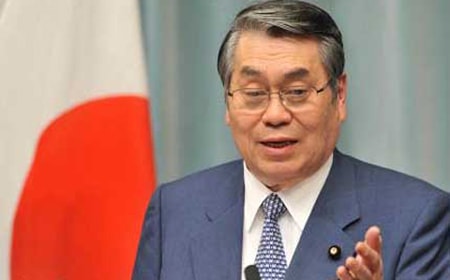Japan orders interception of North Korean missile
On the morning of March 30, Japanese Defense Minister Naoki Tanaka ordered the Self-Defense Forces (SDF) to intercept North Korea's missile, in case the rocket's debris during the satellite launch falls on Japanese territory.
The order was given by Minister Tanaka after he and many other ministers in Prime Minister Yoshihiko Noda's Cabinet agreed on this policy at a meeting of the Japanese Security Council chaired by Prime Minister Noda.

Japanese Defense Minister Naoki Tanaka. Photo: Internet.
According to Kyodo News Agency, with the above order from Minister Tanaka, the SDF's missile defense system is deployed ready to shoot down North Korean missiles. The SDF will also deploy rescue forces trained in disaster management to areas where Japan believes North Korean missiles may fly over.
Previously, on March 27, the Japanese Defense Minister instructed the SDF to prepare to respond to Pyongyang's missile launch in April. Accordingly, the SDF began preparations to deploy Patriot PAC-3 interceptor missile batteries in the Tokyo metropolitan area and southern Japanese provinces such as Okinawa and Ishigaki. Aegis destroyers equipped with SM-3 interceptor missiles were also deployed off the coast of southwestern Japan. Rescue units of the Ground Self-Defense Force (GSDF) will be deployed in the Sakishima island chain area in Okinawa Prefecture.
Tokyo's tough moves come amid reports that North Korea has begun fueling a rocket for a satellite launch and that the launch could take place earlier than expected, possibly on April 12 or 13.
Despite criticism from the US, Japan and South Korea that North Korea's satellite launch was essentially a long-range missile test and violated UN resolutions, Pyongyang declared that it would not abandon its plan to launch a satellite for scientific purposes, emphasizing that this was the legitimate right of a sovereign country.
According to the Korean Central News Agency (KCNA), the Kwangmyongsong-3 satellite is an advanced geostationary meteorological data collection satellite that will be extremely useful for weather forecasting for agriculture and other economic sectors. An official in charge of North Korea's space development program said the country will invite foreign experts and journalists to observe the site to verify the "civilian nature" of the satellite launch.
According to VNA






